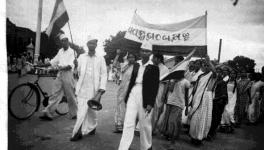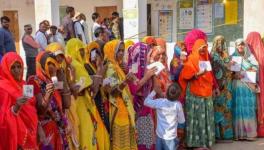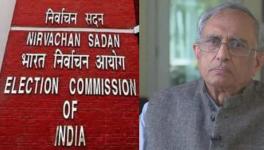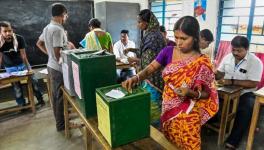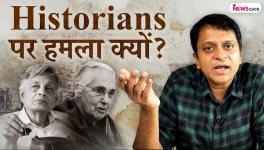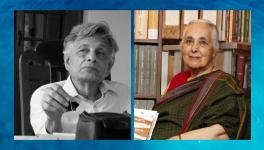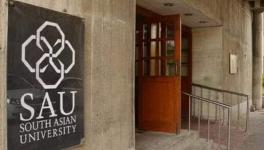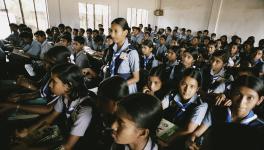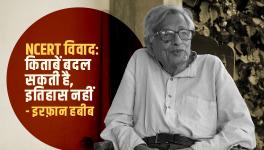Stalin Opens Indian History Congress, Says ‘False History Should be Sidelined’
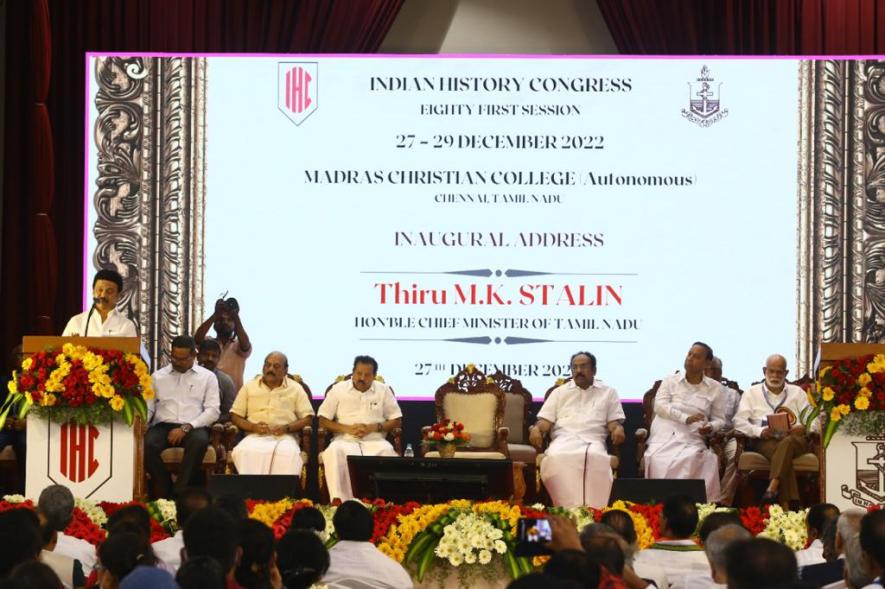
MK Stalin delivering inaugural address. Image credit: Yogesh Mani
The 81st session of the Indian History Congress (IHC) met in the lush green Madras Christian College (MCC) campus in Chennai between December 27 and 29. About 1,500 delegates attended the session from all parts of India.
Inaugurating the IHC, Tamil Nadu chief minister M K Stalin said: "The need of the hour is to instil a sense of history and to nurture scientific temper," and "false history should be sidelined, and people's history should be written."
In his presidential address, titled 'New Sensibilities, New Expression: Passages to a New Formation,' Kesavan Veluthat argued that the 'early medieval' period was indeed a distinct phase in the history of India.
CONGRESS PROCEEDINGS
Mahalakshmi Ramakrishnan, the sitting secretary of IHC, reported that 1,002 rigorously researched academic papers were presented at the event.
The papers were presented in six simultaneous sessions, namely Ancient India, Medieval India, Modern India, Countries other than India, Archaeology and Contemporary India.
The technical sessions were chaired by prominent historians Malini Adiga (Ancient India), Ishrat Alam (Medieval India), Salil Misra (Modern India), Bishnupriya Basak (Archaeology), Margit Koves (Countries Other than India) and Sudha Pai (Contemporary India).
Retired Prof Deepak Kumar, Jawaharlal Nehru University, delivered the SC Misra Memorial Lecture.
On the second day, the IHC Symposium on 'The Evolution of Social Hierarchies in India' was held with Shalini Shah, R P Bahuguna and Irfan Habib as the key speakers. Prof Habib participated through the online mode. He made observations regarding the caste system in medieval India.
There were also special panels, such as 'Framing the Syllabus for History Under the National Education Policy' by Aligarh Historians Society, 'Relooking Tamil History in Socio-Economic Lens: New Questions and Perspectives' by G J Sudhakar and Arun Bandopadhyay; 'The Elephant in the Classroom: Teaching Histories of Gender' by the History Collective, and 'Dalit History and Politics' by Y Chinna Rao.
The Department of History, MCC, organised two special panels, namely 'Archaeology and Cultural Heritage of Tamil Nadu' and 'Discourse on Dravidian Studies.'
RESOLUTIONS PASSED
The History Congress concluded its 81st session with a general body meeting and approved as many as five resolutions. It elected Aditya Mukherjee (Jawaharlal Nehru University, Delhi) as president and Syed Ali Nadeem Rezavi (Aligarh Muslim University) as secretary.
One of the resolutions raised concern about the official promotion of the 'Indian Knowledge System'. It read that it was a worrying trend that the Arthaśāstra and Manusmriti are held as major achievements, although "both texts show a deep-rooted rejection of equality and an addiction to the caste system."
Another resolution noted that the implementation of the Common University Entrance Test (CUET) through the National Testing Agency (NTA) "marks a significant step backwards" for History, a discipline "where the emphasis has been on methodologies, source-based analysis and interpretive frameworks."
On University Grants Commission’s draft syllabi for History in higher education, the Congress resolved that the omission of any mention of the caste system, the removal of the Mughal emperor Akbar in Medieval History and other such developments were grossly “unacademic” features.
With special reference to mosques in Varanasi and Mathura, the IHC held that "structures of any architectural significance that are over 200 years old should be duly protected as 'monuments' by the Archaeological Survey of India."
A resolution was also passed on the COVID-19 pandemic, which observed the failure of the state policy and the lack of state support during the state-imposed lockdown.
HELD IN TN AFTER 26 YEARS
The Tamil Nadu government allotted Rs 35 lakh towards the Indian History Congress.
Notably, in 2015 the Indian Council of Historical Research (ICHR) stripped the IHC of its special funding.
This large event was hosted by the Department of History, MCC. with R Venkataramanujam as the local secretary of the 81st Session of the IGC.
The IHC was held in Tamil Nadu after 26 years. It was previously held in the Madras University campus in Chennai in 1996.
The previous 80th annual IHC meeting was held in Kannur in 2019 when Kerala governor Arif Mohammad Khan created a commotion in a bid to undermine Congress.
The Indian History Congress was founded in 1935; it is considered the country's oldest professional body of historians. At present, it has more than 1,500 members.
Get the latest reports & analysis with people's perspective on Protests, movements & deep analytical videos, discussions of the current affairs in your Telegram app. Subscribe to NewsClick's Telegram channel & get Real-Time updates on stories, as they get published on our website.










